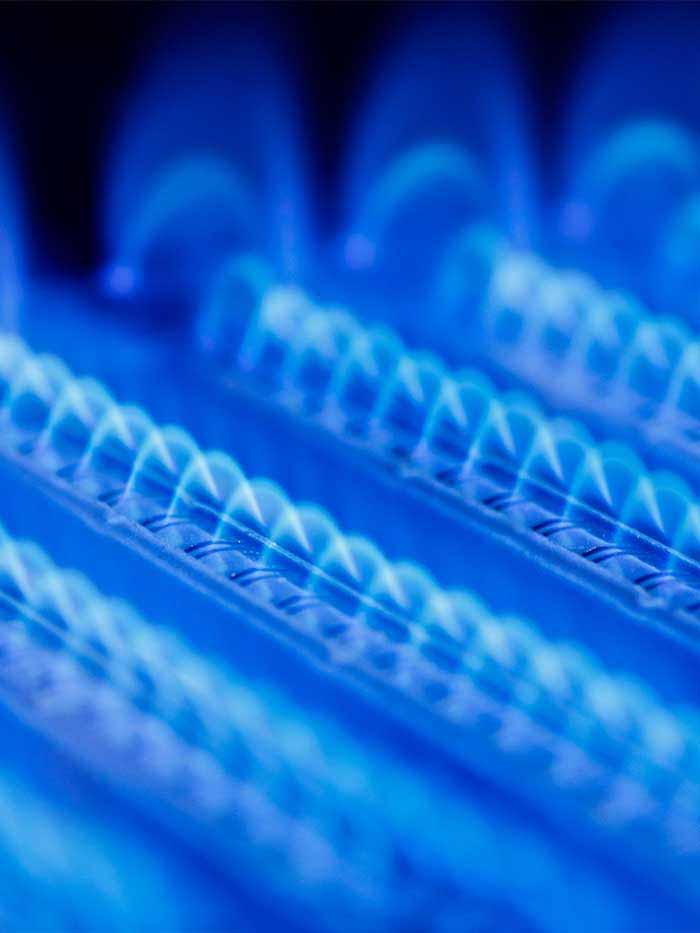
TM Hughes, James the engineer came recommended a new boiler as the repairs require would be almost half the cost of new he was not pushy just a recommendation. We agree and he returned and replace the boiler within three days and return when i called as i was unsure about something, 3 visit within the space of a couple weeks he was very patient and so was mr Hughes when I called thank you both, and I couldn’t be happier.
Very efficient and friendly.
Very pleased with the result! John Hing. 6 Peartree Walk, Billericay.
TM Hughes & Son undertake Gas Safety Inspections in Rayleigh. Following the inspection, we issue CP12 certificates.
Gas Safety Inspections and the accompanying CP12 certificates are essential legal requirements for landlords who rent properties.
If you rent a property, you are required by law to have a Gas Safety Inspection every five years or at the start of each new tenancy (whichever comes first)
The Legislation
As a landlord, you are responsible for the safety of your tenants. The Gas Safety (Installation and Use) Regulations 1998 deal with landlords’ duties to make sure gas appliances, fittings and flues provided for tenants are safe.
Appliances, fittings and flues in a communal area that may be used by tenants are also included.
You are responsible for the maintenance and repair of flues, appliances and pipework provided for your tenant’s use by a Gas Safe registered engineer.
Although there is no prescribed timeframe for these duties, good practice would be the demonstration of regular, annual maintenance checks and subsequent repairs.
You are also responsible for ensuring an annual gas safety check is carried out within 12 months of the installation of a new appliance or flue, which you provide and annually thereafter by a Gas Safe Registered engineer.
You must keep a record of the safety check for two years and issue a copy to each existing tenant within 28 days of the check being completed and issue a copy to any new tenants before they move in.
Who Is A Landlord?
In relation to domestic gas under the Gas Safety (Installation and Use) Regulations 1998 (GS(IU)R 98), a landlord is anyone who rents out a property that they own under a lease that is shorter than seven years or under a licence.
Regardless of whether you are a landlord under GS(IU)R 98, you may be considered a landlord under other related legislation.
Landlords’ duties apply to a wide range of accommodation, occupied under a lease or licence, which includes, but not exclusively: residential premises provided for rent by local authorities, housing associations, private sector landlords, housing co-operatives, hostels rooms let in bed-sit accommodation, private households, bed and breakfast accommodation and hotels rented holiday accommodation such as chalets, cottages, flats, caravans and narrow boats on inland waterways.
Source hse.gov.uk
How We Will Help You
As a landlord, you’re probably aware of your responsibility of ensuring your property is safe for letting to tenants.
You must verify your property is safe before renting to a new tenant (or every five years for existing tenants) as a landlord. You must produce a valid CP12 certificate at the request of your tenants, letting agent or insurers.
Safety includes the gas system, gas pipework and fittings, gas appliances and flues (as outlined in the Gas Safety Regulations 1998).
You will likely have experience in gas safety inspections if you’re an existing landlord.
You are likely looking into gas safety inspections if you’re a new landlord.
Whatever your situation as a landlord, we will happily inspect your property, ensure its gas system and appliances are safe and issue the relevant CP12 certification.
Our gas safety inspections are a straightforward and non-expensive process.
How The Gas Safety Inspection Works
The first step is to book an inspection at a convenient time for you or one of your tenants.
We’ll send over a Gas Safe Registered engineer with full training and years of experience in undertaking gas safety inspections. Our engineer will show you his Gas Safe ID on arrival.
Gas Appliances
Our engineer will visually inspect and test the burn rate, connections and safety devices of all your gas appliances.
We’ll make sure each appliance has no burn damage, is burning the correct amount of gas, and all the safety devices work.
Gas appliances include ovens, hobs, fires and boilers.
All flues and chimneys are tested to ensure exhaust gasses are taken away adequately. The engineer will also test the air supply around each appliance to ensure adequate ventilation.
Gas Supply
The gas supply and meter are checked, and all the pipework running to each appliance. Connections are also tested to ensure they are tight and not leaking gas.
Alarms
Rented properties should have adequate carbon monoxide and smoke alarms. Both are tested for function also.
Dealing With Faults
If any faults are discovered during the inspection, they will need to be rectified before the engineer can pass your property and issue the CP12 certificate.
Minor issues may be fixable during the inspection. Otherwise, we will quote for the repairs and leave it up to you how to proceed.
Once the faults have been rectified, the engineer can pass your property and issue the CP12 certificate.
The CP12 Certificate
Your certificate verifies your properties, gas supply, system, and appliances are safe, the certificate includes.
- The gas engineer’s name, registration number and signature
- The name and address of the landlord or letting agent
- The date of inspection
- The properties address
- Details and location of each gas appliance, flue and parts inspected
- Faults found
- Action that’s taken to rectify the faults found
- Confirmation that the safety check has included an examination of the matters referred to in paragraphs (a) to (d) of regulation 26(9) of the Gas Safety (Installation and Use) Regulations 1998
Reminders
To ensure you don’t let your CP12 expire, we will send a reminder two months before the expiry date.

Hi, I’m Terry, the founder and owner of TM Hughes & Son Gas Services
Please get in touch to book an appointment or receive a free, no-obligation quote
Call – 01268 351075
Email – info@tmhughesandson.uk
TM Hughes & Son Gas Services Ltd
Claydons Lane
Rayleigh
SS6 7UP
0% Finance
For Boiler Installations & Repair








